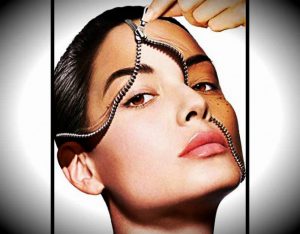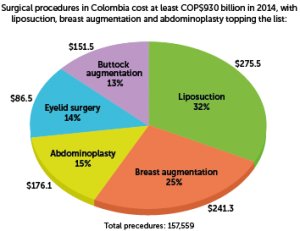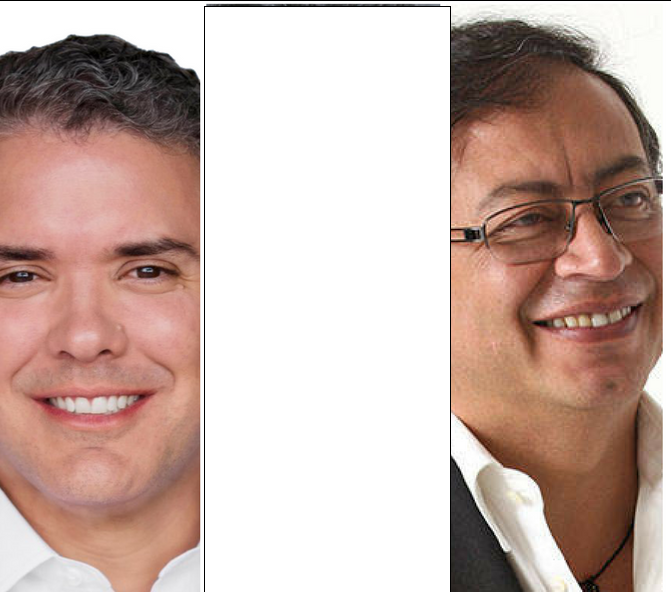
 The ‘Jessica Cediel’ law, now on its second senate reading, is named after a model and TV presenter who is pursuing charges against a fraudulent doctor. In 2009, she was injected with biopolymers instead of the promised hyaluronic acid.
The ‘Jessica Cediel’ law, now on its second senate reading, is named after a model and TV presenter who is pursuing charges against a fraudulent doctor. In 2009, she was injected with biopolymers instead of the promised hyaluronic acid.
 She recently told Despierta America that it would now take a ‘miracle’ to get the chemicals out of her body. The bill aims to regulate the profession and crack down on this type of damaging and sometimes lethal malpractice. Emily Hastings argues on both sides of the entire cosmetic surgery industry.
She recently told Despierta America that it would now take a ‘miracle’ to get the chemicals out of her body. The bill aims to regulate the profession and crack down on this type of damaging and sometimes lethal malpractice. Emily Hastings argues on both sides of the entire cosmetic surgery industry.
For the prosecution
Five women have already died this year in Medellín alone, due to complications following cosmetic surgery operations. The latest victim, 27-year-old Sandra Marcela Pérez Hernández, leaves behind two children aged five and ten.
Tales of injury and death from operations in these ‘garage clinics’ are not new. Stories abound of unqualified doctors operating in poorly equipped establishments using substandard products and Medellín councilman Bernardo Alejandro Guerra has been campaigning for stricter regulations for about a decade.
Let’s be clear: what is happening is horrendous. In addition to unreliable invasive operations, common practices include replacing hyaluronic acid, a very expensive anti-wrinkle product, with biopolymers, vaseline, paraffin oil or even cooking oil.
Professionally qualified plastic surgeons are vociferous critics of the semi-legal outfits, and are leading the charge in calling for stricter legislation. However, I would put it to the jury that while it may be safer, this side of the industry is also seriously ethically flawed.
For starters, while Colombia finally banned cosmetic surgery on minors in September 2014, just the year before, Semana reported that a third of the country’s breast implants were given to girls under the age of 18. That means that until last year, the professional associations and doctors who had been trusted to self regulate – the ones whose advice and judgement we are supposed to trust – went against medical warnings and gave implants to thousands of girls, knowingly risking psychological damage, future deformation and troubles with breastfeeding, because breasts may not be fully developed at that age.
Why? Well, the obvious answer is money. This is a multi-billion dollar international industry, not a health service. Which brings us to a more complex part of the debate: the commoditisation of aesthetics.
According to the latest figures from the International Society of Aesthetic Plastic Surgery (ISAPS) in 2014, Colombia ranked eighth in the world, with 357,115 procedures. Breast augmentation, liposuction and tummy tucks topped the list.
Prices for these operations vary widely, making it difficult to get an accurate figure. But if you take the average cost of each operation and multiply it by the numbers of surgical procedures, you can make a very conservative estimate that at least COP$930 billion – 1,353,015 minimum salaries – was spent on cosmetic surgery in Colombia in 2014.
Of course, people have the right to do what they want with their money, but with media reports that plastic surgery is becoming accessible to people from all walks of life and cosmetic surgery websites boasting extensive financing packages available to fund the operations, I wonder how many of those 357,115 procedures are paid for with borrowed money.
It seems to me there is something tremendously exploitative about people spending their hard-earned cash – or even putting themselves in debt – in order to conform to a manufactured idea about what is beautiful.
The importance of beauty in society – especially a Colombian society with over 300 beauty pageants a year – cannot be denied. Nor can the emotional benefits of feeling good about yourself. But true beauty is about intelligence, personality and poise as much as it is about looks.
And when beauty becomes something to be bought and sold, things become dangerous, because it is in the interests of the beauty industry to exacerbate our insecurities and desires – to sell an almost unattainable one dimensional ideal.
That ideal is what is behind reports that in 2003, Medellín had the highest percentage of teenage anorexia in the world, at a concerning 17.7%. I would contend that the same ideal is behind the five unnecessary deaths in Medellín this year.
Ladies and gentlemen of the jury, I put it to you that the beauty and cosmetic surgery industries cannot be trusted to behave responsibly, and the state has so far proved ineffective in regulating them.
Let’s fight to give our children real confidence, real opportunities and a real sense of beauty, and avoid unnecessary and dangerous operations in the future.
 For the defence
For the defence
There are many theories about why beauty is so important in Colombia. One, supported to some degree by the performance of Colombians in the world’s beauty pageants, is that Colombia simply does have more than its fair share of beautiful people. Another is that decades of violence have made beautiful fairy tales all the more appealing.
Both beauty and intelligence are qualities you are born with, and that you can develop further as you grow up. Why is it that we somehow trivialise those born beautiful – or those that want to look better – and revere those who are born intelligent and who want to study?
Ladies and gentlemen of the jury, I posit very strongly that the prosecution is hugely diminishing both the importance of beauty and the profession of plastic surgery.
Plastic surgery as we know it was developed during the first World War to treat wounded soldiers with facial disfigurements. The industry has developed quickly in the past century and is now used to treat a range of injuries, birth defects and conditions such as burns, cleft lips and other deformities.
While those running these ‘garage clinics’ have minimal qualifications and are really beauticians who have massively overstepped their capabilities, professional plastic surgeons have well over ten years of training behind them and are registered with the Colombian Society of Plastic and Reconstructive Surgery. Lumping the two together does a huge disservice to a respectable profession.
Professionals fully support stronger regulation and legislation to tighten controls on the beauty cowboys. Not only are the horror stories awful for those involved, they frankly only do damage to the cosmetic surgery industry.
As for the real risk, Jorge Enrique Bayter, surgeon and author of a book entitled Catastrophes in Plastic Surgery, says that for every 5,000 patients undergoing plastic surgery in a professional environment, only one dies. He says that patients need to be properly informed about the risks and the factors – such as taking an aeroplane shortly after the operation – which may increase those risks.
The prosecution made much of the costs of surgery, but unless I missed us moving to a nanny state dictatorship, people really do have the right to choose how they spend their money. Surely nearly COP$1 trillion is a good thing for our flagging economy?
Moreover, the implication that there is something wrong with spending one’s hard earned cash on looking good – be it new clothes, makeup, dentistry, hair removal or cosmetic surgery – is patronising in the extreme.
Human beings have spent time and effort on looking good since tribal days, and it’s not about vanity or conforming to a manufactured idea of what we should look like. It is the opposite – you only have to walk along the Séptima to see a parade of outfits and styles.
As beauty columnist and feminist Sali Hughes points out in her book, Pretty Honest, caring about your appearance is “an act of love, self care and, crucially, self expression”.
Or does the prosecution expect us to go about in identikit prison uniforms with paper bags over our heads?
I will rest my case with a final, but fundamental point. This is a question of self determination. Nobody can say that someone born with a cleft lip or someone who has suffered severe burns to their body doesn’t have the right to try to change it. So why is it OK to say that someone shouldn’t take action if they feel their nose is too big or their breasts are too small? Who has that right?
This is not about the beauty industry, it is about human nature and human rights. We have the tools at our disposal to alter our appearance, we have the right to do what we want to our own bodies, and we have the intelligence to see through advertising campaigns from the beauty industry.
By Emily Hastings





